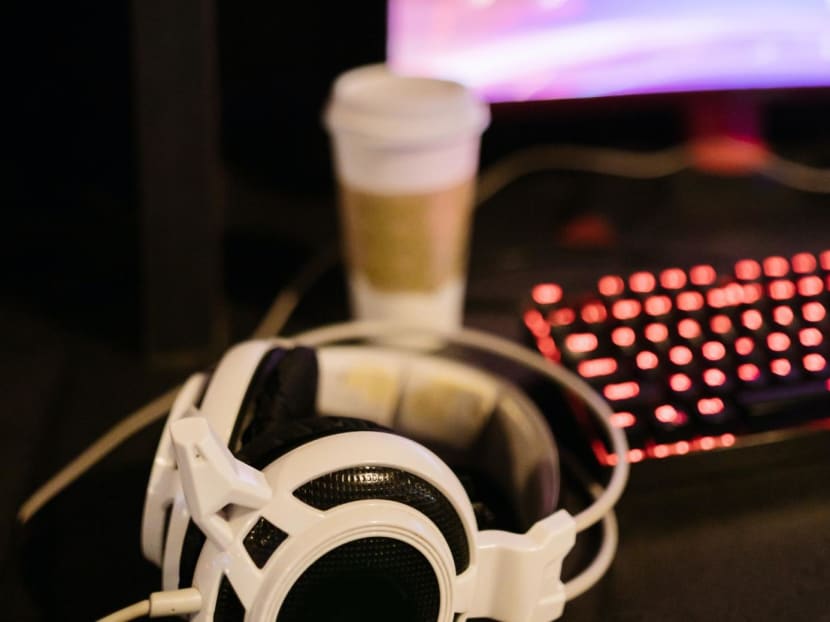Why can’t teenagers sleep early? Can parents and schools do more to combat its ill effects?
SINGAPORE — There is a reason why sleep deprivation has been used as a form of psychological torture in the history of humankind, such as in certain military regimes and interrogation tactics.

- Many teenagers in Singapore are not getting enough sleep
- The constant use of digital devices, addiction to gaming, peer pressure to stay up late and early school start times are contributing factors
- Sleep and mental health experts who spoke to TODAY are concerned about this, with some calling for later school start times
- They also urged parents to recognise the importance of sleep, get more involved to mitigate the problem and set up routines that work
- The Institute of Mental Health's chief executive said that for every hour of sleep deprivation, young people are placing their health, thinking and well-being at risk
SINGAPORE — There is a reason why sleep deprivation has been used as a form of psychological torture in the history of humankind, such as in certain military regimes and interrogation tactics.
Prolonged lack of sleep does terrible things to the human body and mind.
Yet, when it happens at home and to school-going children, the alarm is still not sounding loud enough about what it is doing to the young and the resulting health problems and social ills.
Here is a glimpse into what a typical student here goes through.
In the past year, 14-year-old Ames Leung has been functioning on five to six hours of sleep on school days.
That is about two-thirds of the recommended amount of sleep for teenagers his age, which is eight to 10 hours.
There are many reasons why he is not sleeping more but the main issue is the lack of time.
The Secondary 2 student studies eight academic subjects, has projects and homework to complete, as well as rugby training, sometimes up to four times a week when there are competitions.
Despite his exhausting schedule, he still chooses to continue with his routine gaming and online chats with friends, so he sleeps only well past midnight and then wakes at 6.30am.
Even so, Ames said that he is considered an “early” sleeper among his friends, most of whom sleep around 1am to 2am.
“They ask me why I sleep so early. I tell them that my mum wants me to sleep earlier, else I would sleep around 2am, too,” he told TODAY.
The teenager’s sleep habits are more or less just like the rest of the population here, where most people do not meet their minimum sleep recommendations for optimal health.
Domestic data collected by Duke-NUS Medical School researchers found that secondary school students here report sleeping an average of 6.5 hours on weekday nights.
Fewer than three out of 20 obtain the eight hours of sleep at night, which is the minimum recommended by the United States National Sleep Foundation for this age group.
Young people from the Generation Z bracket face a different set of sleep challenges from that of the previous generation, due to the advent of round-the-clock technology, increased screen time and artificial light exposure as well as other lifestyle-related behaviour.
Sleep and mental health experts who spoke to TODAY are concerned that young people here are chronically sleep-deprived.
Some are calling for later school start times and urging parents to recognise the importance of sleep as ways to mitigate the problem.
WHAT SLEEP DEPRIVATION DOES TO YOUNG MINDS
Teenagers who do not get enough sleep are likely to report poorer mental health.
They face a higher risk of having behavioural problems, as well as suicidal thoughts and tendencies, and may also have problems getting along with others.
Child psychiatrist Daniel Fung, senior consultant and chief executive officer of the Institute of Mental Health (IMH), said: “Sleep deprivation is a form of stress and if chronic, it can result in the development of mental health problems and illnesses.”
“It has been observed that sleep problems during childhood and the teenage years are not just predictive of behavioural issues, but also fuels depression later in life.Clinical psychologist Vyda Chai from Think Psychological Services and Think Kids”
Clinical psychologist Vyda Chai from Think Psychological Services and Think Kids, which has had at least 10 years of experience in working with children, pointed out that getting into a healthy sleep routine or rhythm is important for young growing minds.
“It has been observed that sleep problems during childhood and the teenage years are not just predictive of behavioural issues, but also fuels depression later in life,” Ms Chai said.
“Sleep disturbances among adolescents can affect their ability to regulate emotions and increase the risk of anxiety, low self-esteem, disturbed mood and fatigue. They are also associated with suicidal thoughts and (tendencies) in this group.”
In recent years, Ms Chai and her colleagues at Think Kids have observed a growing number of youth presenting with sleep problems in their practice, who may also report feelings of loneliness and have more difficulties interacting with their peers.
Over the last two years, they have seen a 25 to 30 per cent increase in clients aged four to 25 years with chronic sleep issues due to gaming addictions. These children and young adults may game through the night, with some displaying violent behaviour and poor social skills.
“They tend to display higher levels of irritability, aggression and would, at times, lash out in school or display higher levels of school refusal,” she said.
It was no wonder then that this year, for the first time, the World Health Organization formally recognised video game addiction as an illness.

Lack of sleep or poor-quality sleep can also affect a teenager’s ability to focus, learn and retain information.
Dr Kenny Pang, a ear nose and throat specialist at Asia Sleep Centre who treats sleep-related disorders, said: "Academic performance is also affected with lack of sleep or poor-quality sleep.
“With lack of sleep, the child is tired in class, has poor concentration and poor focus. They may fall asleep in class and might not be able to perform at their best.”
Dr Pang said that children who do not sleep well because of breathing problems and nasal congestion also tend to experience daytime sleepiness, poor memory and poor concentration.
WHAT KEEPS TEENAGERS UP AT NIGHT
Despite overwhelming evidence that links poor sleep to a range of adverse physical and mental health consequences, many people view getting by on little sleep as the norm, a necessity or for some, even a badge of honour.
Dr Fung of IMH observed a lack of sleep routine and family supervision of sleeping hours, even in very young children here. Excessive workload, possibly from school and tuition, is another contributing factor, he added.
“I know this because I used to be very sleepy as a child. I would go home (after school) and study all over again because I couldn’t remember what the teacher said until I figured it out — that if I got enough sleep, it works out.Dr Lim Li Ling, medical director of the Singapore Neurology and Sleep Centre”
Dr Lim Li Ling, medical director of the Singapore Neurology and Sleep Centre, said many students tell her that they are unable to sleep early because they need time to study or they cannot finish their homework.
“But I tell them that if they had gotten more sleep, they would be much more attentive in class. They would retain more of what they learn and be able to finish their homework faster,” she said.
“They think that time cannot come out of nowhere, but it comes from being more efficient and attentive in class.
“I know this because I used to be very sleepy as a child. I would go home (after school) and study all over again because I couldn’t remember what the teacher said until I figured it out — that if I got enough sleep, it works out,” Dr Lim said.
Research by Yong Loo Lin School of Medicine and Duke-NUS Medical School found that an average of 6.5 hours nocturnal sleep is not enough for optimal vigilance, memory and mood.
“Once you sleep well, everything — your mood, attention and so on — improves,” Dr Lim added.
HOW TO HELP TEENAGERS GET MORE AND BETTER SLEEP
- Set regular sleep-wake times daily because irregular sleep can cause children to be tired and lethargic
- Afternoon naps may help but keep them to a maximum of 30 to 40 minutes
- Keep the bedroom quiet and dark, and preferably no big meals before bedtime
- Stop using handheld gadgets an hour before bedtime
- Parents should “ban” the use of all electronic devices in the bedroom and have them charging in another room overnight. This should be a family rule and not apply only to the child
- Avoid stimulants such as caffeinated beverages of cola, tea of coffee after 12pm
Tips from Dr Kenny Pang, an ear nose and throat specialist at Asia Sleep Centre; clinical psychologist Vyda Chai from Think Psychological Services and Think Kids; and Dr Lim Li Ling, medical director of the Singapore Neurology and Sleep Centre
GIVING UP SLEEP TO SOCIALISE, PLAY GAMES
For Ames, between getting one or two more hours of sleep and playing the Minecraft video game online or socialising on instant messaging social channel Discord at night, the choice is clear.
“If I could get more time for sleep, I would take it, of course. But I’ll give up sleep for gaming or talking to friends,” he said.
He catches up on sleep over the weekends by waking at around 9am.
Ames’ mother Sabrina Lee, 43, said that her son does not seem tired and can still function well although it has been getting harder to wake him up in the mornings.
She feels that it is not easy to enforce an earlier bedtime and that it is also important for him to learn to manage his time. For her eight-year-old daughter, however, a 10.30pm bedtime is non-negotiable.
“I understand that eight hours is the ideal. If you have all the resources, (having enough) sleep is, of course, the best but there’re also compensatory opportunity costs.
“For teens, maybe gaming at night is their social life, which gives them a sense of brotherhood, camaraderie?” Ms Lee, a manager, reasoned.
However, experts warned that spending too much time with light-emitting devices, especially at night, wreaks havoc on one’s body clock.
Dr Lim from the Singapore Neurology and Sleep Centre, said: “When light enters the eyes, it pushes the sleep clock back. You’re giving the body the signal that, ‘Oh, it’s time to be awake’.”

Some parents said that the digital age has blurred the boundaries between school work and downtime, resulting in students here being too wired up to go to bed early.
Mrs R Lim, 46, a homemaker, said that parents must keep an eye on their children’s sleep, but schools and teachers have a part to play in how they engage students during after-school hours.
She can no longer enforce a strict 9.30pm bedtime for her 13-year-old son Ray since he started secondary school this year.
“I’ve had to extend his bedtime (to 10pm) because he seems to have endless things and projects to do on his school laptop.
“Then, there’re class chats (over WhatsApp) and he tells me that teachers sometimes give last-minute assignments or classmates want to do last-minute project work,” Mrs Lim added.
“Why can’t announcements and information about homework be communicated during school hours, like how it used to be back in my time?”
WAKING TOO EARLY FOR SCHOOL
Sleep experts said that a main contributing factor for school-going teenagers not getting enough sleep is not so much about later bedtimes, but that they have to wake too early for school.
Teenagers have a natural biological tendency to sleep later, compared with younger children and adults.
Dr Lim explained: “As you go into the teenage years, there is a gradual delay of the circadian rhythm (the ‘body’s 24-hour clock’ that regulates physical functions and behavioural changes).
“(An earlier bedtime) may be possible with younger children but in the teenage group, their natural sleep comes better later, for example, 10pm to 11pm.
“Generally, teenagers may not really go to sleep well until 11pm. And if they need (eight or) nine hours of sleep, then their wake time should be at 8am for them to get the recommended amount of sleep.”
That is why some sleep experts here have called for the Government to step in and let schools adopt later starting times every day, particularly for the teenage group.
Sleep scientists such as Professor Michael Chee from the Yong Loo Lin School of Medicine in the National University of Singapore, and Associate Professor Joshua Gooley from Duke-NUS Medical School, have been vocal in advocating for secondary schools and junior colleges here to start every day at 8.30am or later, based on scientific evidence.
Ms Chai from Think Psychological Services and Think Kids said: “Research has shown that starting school around 8.30am supports the biological needs of adolescents as this provides an opportunity for them to increase their amount of sleep.”
Dr Lim also said that she is “all for” later start times in schools. “If the reasons for not delaying school start time is logistical, I hope we can find ways to get around it.”
Two research studies commissioned by the Ministry of Education (MOE) are now underway to look at the impact of factors affecting sleep duration and sleep quality of students in Singapore to better understand how later start times in schools could contribute to students’ longer sleep duration.
When approached by TODAY, MOE said that it takes a “holistic approach” in helping students develop good sleep hygiene and healthy habits. This is done at age-appropriate junctions through physical education and character and citizenship education lessons.
MOE said that it also works with schools to monitor the overall work and activities load — both academic and co-curricular — of students in school, as well as their parents.
SOME SCHOOLS SHIFT START TIMES
MOE repeated its stance that schools are not to start earlier than 7.30am and that schools have the autonomy to decide on the appropriate start time, adding that some have shifted their start times in recent years.
For example, Junyuan Secondary School starts at 8am on three days of the week and 8.30am on two days. TODAY understands that Loyang View Secondary School also recently shifted its start time on Mondays to 8.30am.
“We have noticed that students go to school looking more refreshed. Students have also mentioned that they are able to concentrate better in class, and more are able to have a proper breakfast before heading to school.Gan Eng Seng School’s vice-principal Glynn Tan”
Gan Eng Seng School’s vice-principal Glynn Tan said that the school’s later start times have benefited students. Students now start classes at 8.40am on Mondays and 7.50am from Tuesdays to Fridays.
A later start time on Mondays has been in place since 2006, but Gan Eng Seng School decided to implement it for the rest of the week in 2020 when there was a need to stagger start times as part of Covid-19 infection controls.
“We have noticed that students go to school looking more refreshed. Students have also mentioned that they are able to concentrate better in class, and more are able to have a proper breakfast before heading to school,” Mr Tan said.
“Parents and students have also given feedback that the morning commute is not as rushed as before.”
“Quite a number of teens I’ve seen reported feeling a sense of relief when their parents step in and take control. It limits them obsessing about what their friends are up to or what’s been posted on social media.Clinical psychologist Vyda Chai from Think Psychological Services and Think Kids”
Dr Fung from IMH is of the view that a shift in school start times alone might not make a huge difference in helping teenagers get the recommended amount of sleep: Parents have a role to play in creating routines that work for their child, while schools need to moderate the amount of schoolwork.
Ms Chai wants parents to know that it is never too late to help teenagers develop better sleep habits.
For example, putting away mobile devices an hour before bedtime can help teenagers fall asleep earlier. They experience less sleep disruptions and feel more rested in the morning.
“Sleep is a learned behaviour. It is important to point out that adolescence is a key life stage transition where healthy behaviours, including those relating to sleep, can be established,” Ms Chai said.
“Quite a number of teens I’ve seen reported feeling a sense of relief when their parents step in and take control. It limits them obsessing about what their friends are up to or what’s been posted on social media.”
More importantly, there needs to be an overall mindset shift in how one views sleep to help the young get much-needed rest.
Dr Fung said: “For every hour of sleep deprivation, young people place their health, thinking and well-being at risk.”
“Is doing something harmful a badge of honour? Like smoking or taking drugs? I would advise challenging one another to sleep more, if one is particularly competitive to see who sleeps the most.”









